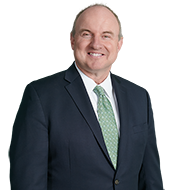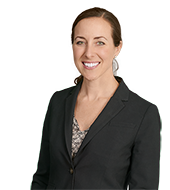COVID-19: Massachusetts Moves into Phase II of Reopening
Effective 8 June 2020, Governor Charles D. Baker’s COVID-19 Order No. 37 moves Massachusetts into Phase II, the “Cautious” phase, of its Reopening Plan (available here). This follows the Governor’s 1 June COVID-19 Order No. 35, which clarified the progression of the Reopening Plan and authorized businesses opening in Phase II to prepare their workplaces (available here). Like Phase I of the Reopening Plan, Phase II will have two steps and is expected to last at least three weeks. The following businesses are among those permitted to reopen their physical workplaces and facilities and resume services in Phase II, Step 1:
- Retail stores for in-store shopping, including those stores located in malls;
- Restaurants for on-site outdoor service, including those located in casinos;
- Beer gardens, wineries, and distilleries that serve food;
- Hotels and other short-term lodging, including those located in casinos;
- Personal services that do not involve personal contact;
- Organized youth and adult amateur sports activities that occur outside;
- Professional sports practice and training programs;
- Professional services at fixed places of business;
- Nonathletic instructional classes for anyone under the age of 18;
- Warehouses and distribution centers;
- Golf facilities, including outdoor driving ranges;
- Outdoor recreational facilities (ex: pools, playgrounds, spray decks);
- Day camps;
- Health care providers for incremental in-person elective, non-urgent procedures and services, including routine office visits, dental visits and vision care subject to compliance with public health and safety standards; and
- All other in-person medical, behavioral health, dental and vision services, except for elective cosmetic procedures and in-person day programs, which will be included in Phase III.
In addition, during Phase II, Step 1, all Phase III and IV businesses (e.g., fitness centers, museums, bars, and theaters) can open their premises to workers to the degree reasonably necessary to perform critical tasks that cannot be conducted remotely.
Assuming health data continues to trend in the right direction, close contact personal services, such as nail salons and personal training services, may resume and restaurants may offer indoor dining at tables in Phase II, Step 2. Bar seating and any standing eat-in-service remain prohibited until further notice.
Phase II Safety Standards
All businesses permitted to reopen in Phase II must abide by the Mandatory Safety Standards for Workplaces adopted during Phase I, available here, as well as applicable sector-specific rules issued by the Commonwealth. Sector-specific rules and recommended best practices for retail businesses, restaurants, lodging, and golf facilities have been developed and are available here; rules and guidance for Phase II, Step 1 sectors not otherwise addressed are available here; and rules and guidance for Phase II, Step 2 close contact personal services are available here. Similar to the Phase I Mandatory Safety Standards, the Phase II sector rules and best practices focus on social distancing, hygiene, staffing and operations, and cleaning and disinfecting. For example,
- Retail business:
- Must limit their occupancy to either eight people (including store staff) per 1,000 square feet of accessible, indoor space, or 40% of the retail store’s maximum permitted occupancy as documented in its occupancy permit, whichever is greater;
- Must keep their fitting rooms closed, and prohibit customers from trying on clothes;
- Must require face coverings for all workers and customers, except where unsafe due to a medical condition or disability;
- Must prohibit the use of reusable bags;
- Should reconfigure their spaces to ensure separation of six feet or more between individuals wherever possible;
- Should encourage customers to use delivery, curbside pickup, or “appointment only shopping,” to the extent that those services are available; and
- Should install physical barriers between workstations and checkout stations.
- Restaurants:
- Must keep tables six feet apart from each other and any high-traffic areas (ex: bathrooms, entrances, exits). If restaurants do not position tables six feet from one another, they must separate their tables with protective barriers that are at least six feet high and separate the tables from each other and high foot traffic areas;
- Must limit the size of a party seated at a table to no more than six people; and
- Must keep all areas not used for food and beverage services, such as playgrounds and pool tables, closed.
- Lodging:
- Must close or reconfigure common spaces and high-density areas where people are likely to congregate to allow six feet of physical distancing (this may include establishing directional hallways);
- Must discontinue the use of shared food and beverage equipment in lobbies, as well as ice machines; and
- Should improve ventilation for enclosed spaces as much as possible.
- Golf Facilities:
- Must limit groups of players to no more than four players at any one time;
- Must require golfers to leave the course immediately following play, and should encourage golfers not to congregate in any areas on or around the course, including parking lots; and
- Should encourage golfers to walk or use a pushcart but may allow golfers to use golf carts if each cart is used by, and contains only, a single rider or a group of golfers living in the same house. Operators of golf facilities must clean and sanitize golf carts and pushcarts after each use.
- Sectors Not Otherwise Addressed:
- Must ensure separation of six feet or more between people whenever possible, including by closing or reconfiguring worker common spaces, installing physical partitions to separate workspaces, and installing visual social distancing markers for customers;
- Must require face coverings for all workers and customers, except where individuals are unable to wear a face covering due to a medical condition or disability;
- Must regularly sanitize high-touch areas;
- Must provide training to workers on safety information and precautions aimed at reducing disease transmission;
- Must notify the local board of health if the employer is notified of a positive case at the workplace;
- Must post notices to workers and customers of important health information and relevant safety measures;
- Must log everyone who comes on site, including temporary visitors; and
- Should improve ventilation for enclosed spaces and use contactless payment methods.
- Close Contact Personal Services:
- Must arrange workstations so they are at least six feet apart and install physical partitions at least six feet high between workstations where feasible;
- Must install visual markers to encourage customers to remain at least six feet apart;
- Must require face coverings for all workers and customers, except where individuals are unable to wear a face covering due to a medical condition or disability;
- Must require workers to wear gloves (which must be changed before and after each customer), gowns or smocks (which must be changed between each customer), and prescription glasses, safety glasses, or goggles;
- Must prohibit customers from bringing guests with them unless the person is a caretaker or guardian;
- Must prohibit workers from sharing tools and supplies;
- Must provide training to workers on up-to-date safety information and precautions aimed at reducing disease transmission; and
- Must shut down the site and wait 24 hours before cleaning and disinfecting the workplace if there is a positive case of a worker, patron, or vendor.
Phase II businesses not previously authorized to operate as a COVID-19 essential service cannot resume operations until they have brought the workplace into full compliance with the Mandatory Safety Standards and applicable sector-specific rules, completed the required self-certification confirming such compliance, and posted all required public notices and advisories.
Phase II, Step 1 businesses that remained open as a COVID-19 Essential Service have until 15 June 2020 to certify their compliance with applicable COVID-19 workplace safety rules issued pursuant to COVID-19 Order No. 37.
Barber shops and hair salons that opened during Phase I will become subject to the Close Contact Personal Services mandatory workplace standards once they are authorized to provide those services in Phase II, Step 2.
Businesses that violate the terms of COVID-19 Order No. 37 or any directives, regulations, or guidance issued pursuant to the order may be fined up to $300 per violation. The Commonwealth can also enforce the Order through injunctive relief.
Childcare Programs
Recognizing that childcare programs are necessary to support the reopening of businesses, on 1 June 2020, the Governor issued COVID-19 Order No. 36, which allowed childcare programs to open to workers to prepare for reopening (available here). Effective 8 June, childcare programs licensed by the Department of Early Education and Care (DEEC) must submit plans to the DEEC for approval before they can reopen. All childcare programs must follow the minimum health and safety standards set forth by DEEC (available here). For example:
- All groups must be limited to ten children per group, with a maximum of 12 individuals including children and staff in each group. Children must remain in the same group each day and at all times, and groups cannot be combined. Similarly, staff must be assigned to the same group of children each day for the duration of the entire program session. Staff may not float between groups;
- Programs must screen all staff and children before the children are permitted to enter the space. This screenings must include a verbal screen, a visual inspection, and temperature checks. Any child that does not pass the screening must return home with their parent or caregiver and should not be permitted to enter the building. Health check responses and individual temperature check results must be recorded and maintained on file;
- Staff must monitor children throughout the day for symptoms of any kind. Children who appear ill or are exhibiting signs of illness must be separated from the group and isolated until able to leave the facility;
- Programs must encourage children and staff to wear masks or cloth face coverings during the program day. Masks or cloth face coverings must be worn whenever six feet of physical distancing is not possible. An exception may apply when situations prevent individuals from wearing masks safely; and
- Hand washing facilities must be readily accessible to all children and staff. Children and staff must wash their hands and use hand sanitizer often.
Limitations on Gatherings
Finally, pursuant to Governor Baker’s 6 June COVID-19 Order No. 38 (available here), gatherings of more than 10 people in any confined indoor or outdoor space remain prohibited. However, the 10-person limitation does not apply to gatherings in unenclosed, outdoor spaces, provided that social distancing can be maintained, the type of gathering has not been prohibited, and that the venue has not been closed by prior COVID-19 orders.
K&L Gates is advising clients on the parameters of the Massachusetts Reopening Plan and is well prepared to assist businesses as they navigate operations or seek clarifying guidance regarding the Reopening Plan. More information about K&L Gates’ COVID-19 work is available here on the K&L Gates HUB, including its U.S. Employer Checklist: Re-Opening Strategies and Return to Work Policies After COVID-19 Outbreak, available here.
This publication/newsletter is for informational purposes and does not contain or convey legal advice. The information herein should not be used or relied upon in regard to any particular facts or circumstances without first consulting a lawyer. Any views expressed herein are those of the author(s) and not necessarily those of the law firm's clients.






